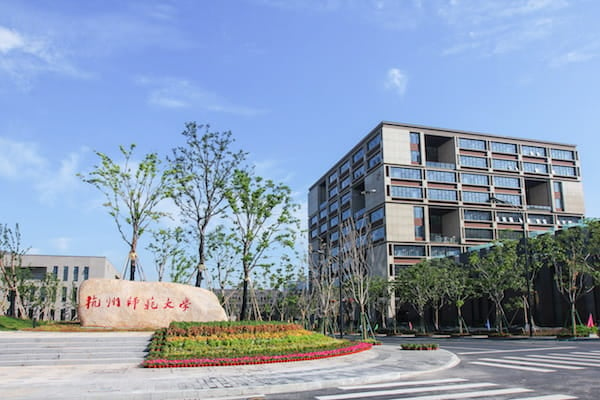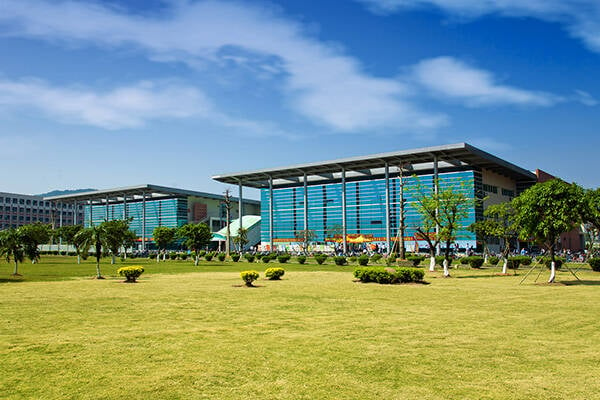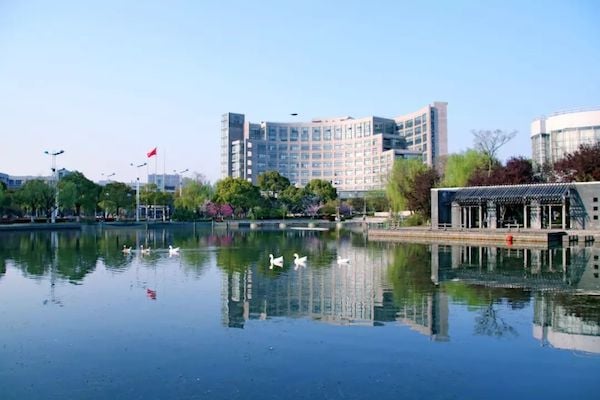
Zhejiang College of Construction
 Photos Photos |
![]()
Introduction to Zhejiang College of Construction
Zhejiang College of Construction (ZJCC, website) is located in the bank of Hangzhou Qiantang River. It is the only full-time higher vocational college in Zhejiang Province. It was founded in 1958 as a Zhejiang Construction Industry School. In January 2002, it was formally established with the approval of the Zhejiang Provincial Government. The college has been identified as a national quality college, and has transported more than 60,000 talents for the construction industry and local economic construction. It is the base and cradle for talent cultivation in the construction industry. In 2018, the college was named as a civilized unit in Zhejiang Province.
The college has two campuses, the Xiaoshan campus covering an area of 522 acres, and the Shangyu campus under construction covering an area of 500 acres. There are more than 8,000 full-time students, with teaching and research equipment worth more than 128 million yuan, 920,000 paper books and 990,000 electronic books.
The College Xiaoshan Campus consists of five departments: Department of Architectural Engineering, Department of Economic Management, Department of Urban Construction Engineering, Department of Architecture and Art, and Department of Humanities and Information; two colleges: NCO and Continuing Education; three departments: Society Ministry of Science, Sports Department, and Experimental Training Department. There are more than 500 faculty members, including 338 full-time teachers, 143 senior teachers and 20 doctors.
The college took the initiative to participate in the national “One Belt, One Road” strategy, and signed a strategic cooperation agreement with the Philippine Batangyan State University to jointly build the “China-Philippines” Belt and Road Construction Skills Talent Silk Road College and launch the first batch of Philippine international students enrollment work.
It also held an international seminar on National Small Hydropower Technology Training Course, and built an overseas Silk Road Academy cooperating with the Asia-Pacific Small Hydropower Research and Training Center.
The college is also actively expanding international cooperation. We cooperated with Bates College in the United States to hold architectural design and building electrical engineering technology.
The college developed architectural design and electrical engineering technology cooperating with Bates College of the United States to, carried out the Department of Architectural Engineering Technology with the Royst College of Arts and Sciences in Canada, conducted teacher training programs with countries such as Germany, the United Kingdom, and Australia, started exchange research projects with Taiwan, Hong Kong and other regions.
The college has established 75 student associations, and a university student innovation and entrepreneurship park, and has 19 entrepreneurial incubation projects. In recent years, students have won more than 270 awards such as special prizes and first prizes in national vocational college skill competitions, “Challenge Cup” national vocational school innovation and entrepreneurship competitions and other national, provincial and ministerial competitions. For three consecutive years, it has hosted the National Vocational College Skills Competition.
![]()
Video
 About Hangzhou
About Hangzhou
Hangzhou is the provincial capital of Zhejiang Province, a strong economical province in China. It is the transportation hub, the political, economic, cultural and financial center of Zhejiang Province.
At the end of 2018, the Hangzhou metropolitan area has an area of 53,239 square kilometers and a population of 25.698 million. According to the “China Metropolitan Area Evaluation Index” issued by Shanghai Jiaotong University, Hangzhou is the fourth largest metropolitan area in China after Shanghai, Guangzhou and Beijing. In 2015, Hangzhou’s economic aggregate ranked 10th in mainland China, and was rated as the best commercial city in mainland China by Forbes. As the headquarters of Alibaba and other Internet industry companies, the city has a strong population appeal to Internet industry personnel.









